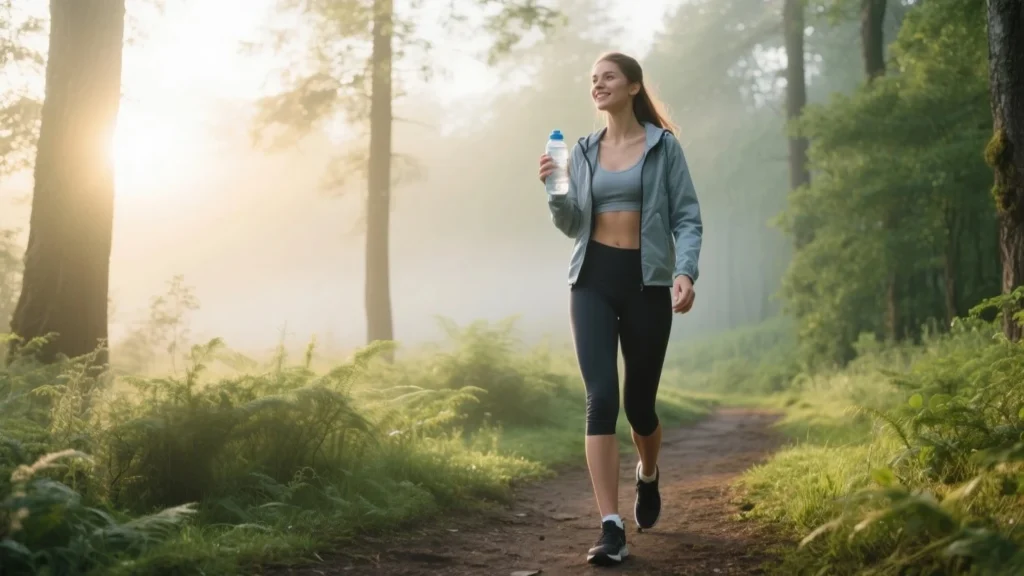
If you’re constantly feeling tired but want to avoid stimulants, you’re probably wondering how to get energy without caffeine. Whether you’re sensitive to caffeine, trying to cut back, or just want longer-lasting energy without the crash, the good news is—you have options.
In this guide, we’ll explore practical daily habits and natural strategies to increase energy levels safely and sustainably. Plus, we’ll share tips on clean supplements and lifestyle upgrades to keep you energized from morning to night—without a single drop of coffee.
👉 Already read our main guide to boosting energy naturally? Here, we go a step further with daily routines and specific tips you can start using today.
Why Avoid Caffeine?
While caffeine can give you a short-term jolt, it often leads to:
- Energy crashes
- Irritability or anxiety
- Sleep disturbances
- Increased dependence
Learning how to get energy without caffeine means fueling your body in a way that feels balanced, clear, and long-lasting.
How to Get Energy Without Caffeine – 7 Simple Habits
✅ 1. Eat a Balanced, Energy-Boosting Breakfast
Start your day with a combo of protein, fiber, and healthy fats. This keeps your blood sugar steady and supports brain function.
Examples:
- Greek yogurt + berries + chia seeds
- Eggs + avocado + whole grain toast
✅ 2. Move Your Body (Even Just a Little)
You don’t need a 90-minute workout. A brisk 10-minute walk or some light stretching can increase circulation and boost oxygen to your brain.
Bonus: Morning movement resets your circadian rhythm—improving sleep and energy later.
✅ 3. Stay Hydrated
Fatigue is often the first sign of dehydration. Drink at least 2 liters of water daily, and consider starting your morning with warm lemon water to kickstart digestion.
✅ 4. Take Sunlight Breaks
Morning sunlight helps regulate melatonin production and boosts vitamin D, a key nutrient for natural energy. Try spending 10–15 minutes outside daily.
✅ 5. Manage Stress with Micro Breaks
Chronic stress leads to adrenal fatigue and energy crashes. Use tools like:
- Box breathing (4-4-4-4)
- Guided meditation (5 min)
- Gratitude journaling
Stress management = stable energy.
✅ 6. Optimize Your Sleep Routine
Good energy starts the night before. To improve sleep:
- Stick to a regular schedule
- Avoid screens 1 hour before bed
- Create a cool, dark environment
Aim for 7–9 hours of high-quality sleep.
✅ 7. Use Natural Energy Supplements (Optional)
If you’re looking for an extra boost, certain caffeine-free supplements can help support energy metabolism, focus, and blood flow—without overstimulating your system.
Recommended option:
👉 Nitric Boost – A stimulant-free formula with L-arginine and beetroot extract, designed to enhance natural energy by improving circulation, oxygen delivery, and cellular performance.
Bonus: Key Nutrients to Watch
To support sustained energy, make sure you’re not deficient in:
- Magnesium – Supports ATP (cellular energy) production
- Iron – Prevents fatigue caused by low oxygen transport
- B-complex vitamins – Especially B12 and B6
- CoQ10 – Boosts energy at the mitochondrial level
Check with your doctor before supplementing.
❓FAQ – How to Get Energy Without Caffeine
Q1: How long does it take to regain energy after quitting caffeine?
A: Most people experience withdrawal symptoms for 3–7 days. After that, energy begins to normalize.
Q2: Can I still drink decaf or green tea?
A: Yes—decaf contains minimal caffeine, and herbal teas like rooibos or peppermint are completely stimulant-free.
Q3: Are caffeine-free supplements effective?
A: Yes! Many support energy through metabolism, circulation, and nutrient delivery—without over-stimulation.
Q4: Why am I still tired even without caffeine?
A: Fatigue may be related to poor sleep, low iron, stress, or dehydration. Addressing root causes is key.
Q5: Can I drink water instead of coffee for energy?
A: Staying hydrated improves oxygen and nutrient flow—so yes, it can help surprisingly well.
Q6: How to get energy without caffeine while working long hours?
A: Use movement breaks, hydration, sunlight exposure, and light meals with protein to keep energy stable all day.
Final Thoughts
Learning how to get energy without caffeine isn’t about giving something up—it’s about gaining back control, clarity, and balance. By focusing on hydration, nutrition, sleep, movement, and natural supplementation, you can create a long-lasting energy system that doesn’t rely on a stimulant.
If you’re ready to feel more alert and alive—naturally—start with one habit today. Your body will thank you.
👉 Explore Our Top-Rated Natural Energy Supplements →
Emma Blake is a health and wellness writer at Ultimate Boost, focusing on gut health, skin wellness, and holistic living. She simplifies complex health topics to empower readers.

